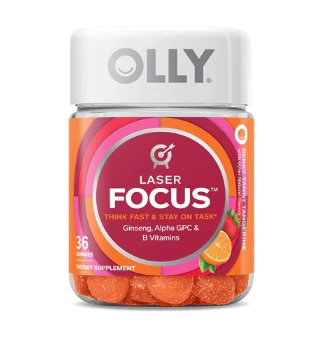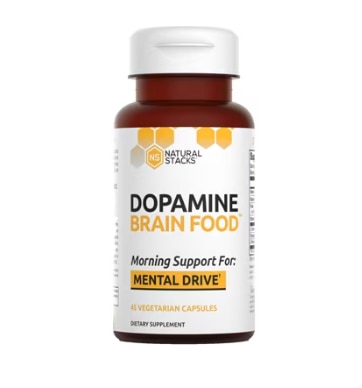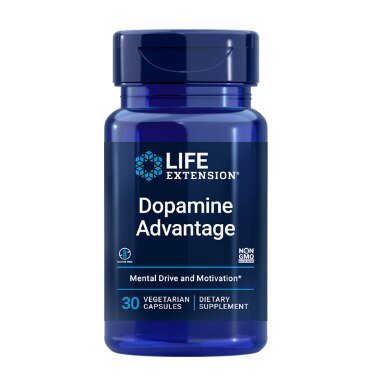Consider, if you will, the state of your attention span. Does it feel like it’s constantly being interrupted, unable to sustain focus? Do you jump from Facebook to news to marketplace to shopping? Do you interrupt many conversations to check some factoid out on google? How many times a day do you pick up your phone? (Hint: you can find that appalling stat on pickups in settings under screentime.)
The other day I realized I reach for my phone instead of reaching for a hand, or instead of reaching for my journal or a book. I reach for my phone when I’m lonely, tired, excited, angry, bored, happy, chatty, not chatty. In other words, my phone has become the companion of my days, for better or worse, till death do us part. Unless—some kind of intervention is possible. Short of going to a place where there is no electricity and no cell service, what can a person do to severe or at least strain ties to the unhealthy dopamine hits that bind us?
What is a dopamine detox?
Enter the dopamine detox. Dopamine detox, also known as a dopamine fast, is a term that originated from the concept of reducing or abstaining from activities that stimulate the release of dopamine in the brain. Dopamine is a neurotransmitter that plays a crucial role in the brain’s reward and pleasure systems, and brings on feelings of motivation, pleasure and reinforcement.
While some experts complain that the term dopamine detox is a misnomer, since dopamine is neither toxic, addictive nor pleasurable in itself. And you can’t fast from a naturally occurring brain chemical. Dopamine can help reinforce addictive behaviors, but you can’t be addicted to dopamine. It is more accurate to call it an impulsivity detox, since it is the impulsive behaviors that are the problem, not the dopamine.
A dopamine detox is best suited to control eight impulsive behaviors. They are:
- Emotional eating/drinking
- Social media
- Texting
- Binge watching or gaming
- Gambling or shopping
- Porn or masturbation
- Thrill or novelty seeking behaviors
- Recreational drug use
While the concept of a dopamine detox, which emerged as a self-improvement trend in 2019, is subjective, taking a break from these behaviors can be a revealing litmus test for how much of a hold they have on you. Of course, you can’t cut out food, internet or shopping, all together. The goal would be to find a healthier balance between quick, effervescent dopamine seeking behaviors and slower, steadier sources of dopamine, such as reading books, being in nature, or any activity that requires undistracted focus.
Taking a time out can help you reevaluate the effects of constant instant gratification or overstimulation, such as excessive use of technology, social media, video games, junk food and other sources of immediate pleasure.
Clearing the books, so to speak, can help you reset the brain’s dopamine receptors and restore sensitivity to less flashy rewards. Restraint can lead to increased motivation, productivity and overall well-being. Some people interpret a “no stimulation” detox as including exercise, music, reading and even socializing. This is probably too extreme for most and may be a form of self-sabotage. Human interaction is healthy. The point is to replace unhealthy, screen driven activities with more nourishing interactions.
The point of a dopamine fast is to gain awareness and control over impulsive behaviors to live a healthier, more present life. The extreme version of a detox, in which all pleasurable activities are refrained from, seems like it defeats the premise and purpose of a detox, which is to find a better balance between faster and slower forms of pleasure.
How do you know if it’s time for you to detox your habits?
There are a lot of different signs that you may be struggling with an overused dopaminergic system. Tipoffs may include:
- You don’t feel very motivated to get important work done.
- You find it difficult to stay focused at work or school.
- You know you should do something but can’t muster the willpower to do so.
- You crave unhealthy foods and avoid healthy ones.
- You fill your free time with entertainment and pleasurable activities.
The converse of an overextended system is a balanced, recharged, regulated system. The benefits of a detox are increased focus, enhanced self-control, improved mood, heightened senses, increased creativity and improved sleep. And while unplugging from your phone for just a few days won’t rewire your brain, it can help you assess the toll your phone takes on your mental health.
Digital media such as shopping websites, TikTok, Instagram, podcasts and music releases a lot of dopamine in a specific part of the brain called the reward pathway. Any rewarding stimulus—a text from a friend, a “like” on a post, a photo of a vest you would like to purchase—can give you a small hit of a good feeling.
The reward pathway works best when it can ebb and flow naturally throughout the day, like at mealtimes. But so much of the content on our phones triggers the reward pathway as strongly as possible, meaning that frequent use releases a “firehose of dopamine stimulation.” Your phone blows up, then goes silent, so you obsessively check it for the next hosing.
How to do a dopamine detox
During a dopamine detox, individuals typically avoid or limit their exposure to activities that trigger a quick thrill. This might include refraining from using smartphones, watching TV, playing video games, engaging in excessive internet browsing, or consuming highly processed or sugary foods. Instead, focus on activities that are less stimulating, such as reading, meditating, spending time in nature, practicing mindfulness or engaging in creative pursuits.
The specific duration and intensity of a dopamine detox can vary depending on the individual’s goals and preferences. You can choose to do shorter detoxes, like a day or a weekend, or opt for longer periods, such as a week or 30 days, the time many experts say take for a new habit to form. Try to implement the fast in small, minimally disruptive ways at first, building to larger interventions.
For example, California psychiatrist Dr. Cameron Sepah, who pioneered the idea of the dopamine fast, suggests you could practice dopamine fasting from one to four hours at the end of the day (depending on work and family demands), for one weekend day (spend it outside on a Saturday or Sunday), one weekend per quarter (go on a local trip), and one week per year (go on vacation). The detox can be personalized based on individual needs and circumstances.
Here are some examples of what a dopamine detox could look like.
- Identify the areas where your impulse control is at its lowest.
- Create the parameters you want to enforce regarding a couple of these areas, whether you want to disengage for a few hours a day or wish for something more extreme.
- Decide on your go-to list of alternate activities, such as meditating, knitting, walking, gardening, etc.
- Reduce your screentime by minimizing your exposure to social media, TV, movies, YouTube, video games, etc.
- Keep your cellphone off for the first few hours of the day or the last few hours.
- Avoid all sugary and sweet foods (even zero-calories sweeteners) for a week.
- Avoid or limit alcohol consumption for a full week.
- Abstain from sexual activities for a couple of weeks, including intercourse, pornography, etc.
- Avoid specific activities or interactions that you crave or that you feel give you instant “feel good” sensations.
- Lean into exercise and self-care.
- Cultivate meaningful interactions and conversations with others.
- Write and reflect about the experience and any changes you notice in your awareness.
It’s important to note that the concept of a dopamine detox is not scientifically validated, and there is limited research specifically examining its effects. If you have any concerns about your mental or physical health, seek out a healthcare professional. Ultimately, the concept of a dopamine detox serves as a reminder to reassess our habits, find a better tech-life balance and choose activities that feed our souls, not our cell phones.




